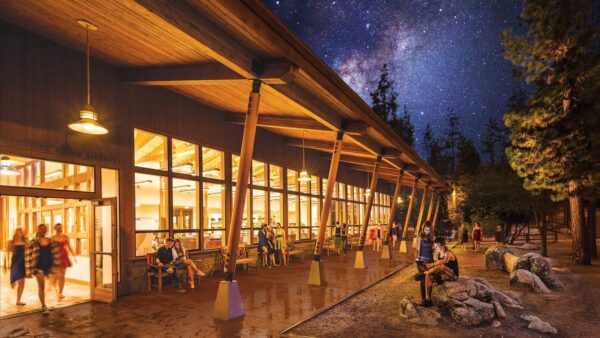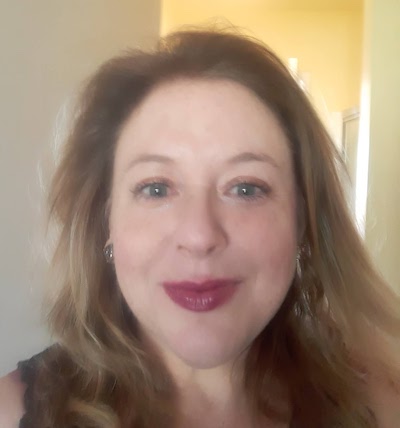
- Details
- By Tamara Ikenberg
IDYLLWILD, Calif. — Starting July 2, you can Zoom in on the minds of Native American art, society and ecology experts digging deep into of-the-moment issues in Indian Country.
For the first four Thursdays in July, at noon Pacific Time, The Michael Kabotie Online Lecture Series is offering free food for thought with the series “Art & Ecology & Society: Indisputable New REALities.”
The series is part of Idyllwild Arts’ Native Arts Summer Program and will be available via a Zoom webinar. For more information and to sign up visit Idyllwild Arts (https://www.idyllwildarts.org/summer/nativearts/)
The Idyllwild Arts Academy and Summer Programs, located in Southern California on the land of The Cahuilla Band of Indians, has transferred all of its classes, workshops, lectures, etc, online due to COVID-19.
On July 2, the lectures kick off with “California Native Resources: Effects of Climate Change & Place-Based Arts,” moderated by Terria Smith (Torres Martinez Desert Cahuilla), Editor of News from Native California Magazine.
The speakers are traditional arts practitioner Leah Mata Fragua (Northern Chumash), educator, language teacher, and tribal singer Stanley Rodriguez (Kumeyaay – Iipay, Santa Ysabel) and Curator of the Sherman Indian School Museum in Riverside, California and Lorene Sisquoc (Cahuilla/Apache).
The challenges of preserving California indigenous art traditions threatened by climate change, and the community-based interventions the speakers are using to improve the situation, will be discussed.
On July 9, the series will tackle “Water Disparities in Indian Country” with Dr. Otakuye Conroy-Ben (Oglala Lakota), Assistant Professor in the School of Sustainable Engineering and the Built Environment at Arizona State University.
Tribal populations receive a more contaminated water supply than non-Tribal populations. Dr. Conroy-Ben will dive into environmental data to expose this dangerous inequality and propose solutions to the problem.
For the second half of the series, presentations shift from the natural world to the new pandemic-prompted digital landscape.
On July 16, the co-founders of the quarantine-born Social Distance Pow Wow Facebook group, will discuss “Digital Confluence: Age of the Online Pow Wow.”
With nearly 200,000 followers, Social Distance Pow Wow has exploded into an essential platform for Native American artists during the pandemic, and a welcoming, safe online space for indigenous people to share their cultures, concerns and accomplishments.
The co-founders and speakers are Chairman of the South Dakota Humanities Council Whitney Rencountre (Hunkpati Dakota), traditional wampum shell carver Dan Simonds (Mashantucket Pequot), and traditional dancer, beadworker and quill worker Stephanie Hebert (Mi’kmaq / Muise).
The final lecture, on July 23, is “Digital Cultural Divide/What Does Tech Equity Mean on the Rez?” featuring Steven Estrada, (Santa Rosa Band of Cahuilla Indians), Vice Chairman of The Santa Rosa Tribal Council since 2007 and Environmental Manager for the Soboba Band of Luiseño Indians.
Estrada will examine how Covid-19 has forced Tribal communities into all-online engagement, including attending school virtually, and how this major change is impacting Native Americans with limited or no internet access.
More Stories Like This
Center for Native Futures Hosts Third Mound Summit on Contemporary Native ArtsFilmmakers Defend ‘You’re No Indian’ After Demand to Halt Screenings
A Native American Heritage Month Playlist You Can Listen to All Year Long
11 Native Actors You Should Know
Five Native American Films You Should Watch This Thanksgiving Weekend
Help us defend tribal sovereignty.
At Native News Online, our mission is rooted in telling the stories that strengthen sovereignty and uplift Indigenous voices — not just at year’s end, but every single day.
Because of your generosity last year, we were able to keep our reporters on the ground in tribal communities, at national gatherings and in the halls of Congress — covering the issues that matter most to Indian Country: sovereignty, culture, education, health and economic opportunity.
That support sustained us through a tough year in 2025. Now, as we look to the year ahead, we need your help right now to ensure warrior journalism remains strong — reporting that defends tribal sovereignty, amplifies Native truth, and holds power accountable.
 The stakes couldn't be higher. Your support keeps Native voices heard, Native stories told and Native sovereignty defended.
The stakes couldn't be higher. Your support keeps Native voices heard, Native stories told and Native sovereignty defended.
Stand with Warrior Journalism today.
Levi Rickert (Potawatomi), Editor & Publisher

